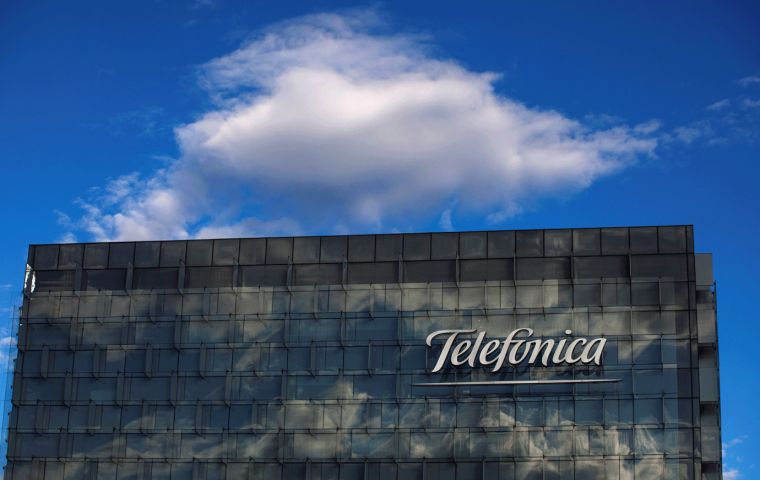MercoPress. South Atlantic News Agency
Telefonica Brazil and three sub contractors responsible of engaging slave labor
 A panel of labor judges ruled that Telefonica, (Vivo in Brazil), was guilty after workers toiled in slavery-like conditions during the building of a cellphone tower in 2014.
A panel of labor judges ruled that Telefonica, (Vivo in Brazil), was guilty after workers toiled in slavery-like conditions during the building of a cellphone tower in 2014. Leading mobile company Telefonica Brasil and three firms in its supply chain have been found guilty of engaging in slave labor, authorities said this week. A panel of labor judges in Espirito Santo state ruled that Telefonica, publicly traded as Vivo in Brazil, was guilty after workers toiled in slavery-like conditions during the building of a cellphone tower in 2014.
The decision supports the idea that companies be held responsible for labor abuses within their supply chain, even when not directly involved in perpetrating them, prosecutors and campaigners said.
“This was a joint conviction of all the members of the supply chain,” said Valerio Heringer, Espirito Santo’s top labor prosecutor.
“(Labor laws) cannot be forgotten by any firm in a supply chain,” Heringer underlined, “The omission by one company impacts all the others.”
The company and its contractors will be fined R$200,000 (US$ 53,167), but also risk being added to a “dirty list” of companies found guilty of slave labor by labor courts.
The list is set to be published for the first time later this year, but prosecutors would not confirm whether Vivo would be added.
“Telefonica informs that it does not condone any illegal work practices,” Vivo said in a statement, adding that it would appeal the decision.
Prosecutors said Vivo hired BR Towers, now part of American Tower, to rent a site in Espirito Santo for a cellphone tower, which then contracted Bimetal Industria Metalurgica to plan it.
Bimetal sub-contracted Norte Amazonia Construçoes to build it.
Eleven laborers were lured for the job from Maranhao, one of Brazil’s poorest states, working long hours for a month without adequate rest or bathroom or sleeping facilities, while receiving no pay.
Their employer held their working papers even after the job was done, leaving the workers “in a miserable state, abandoned on the place they were working on, unable to return to their homes,” wrote lead prosecutor Antonio Carlos Soares.
The case pre-dates American Tower’s acquisition of BR Towers, a spokesman for the company said, adding the company’s policy was to not comment on ongoing litigation.
In the last quarter, Telefonica reportedly held just over 32% of the mobile market share, posting profits of about R$1,485 billion (US$ 395 million).
Slavery in Brazil is defined as forced labor, but also includes debt bondage, degrading work conditions, long hours that pose a health risk or work that violates human dignity.




Top Comments
Disclaimer & comment rules-

-

Read all commentsI guess old habits die hard.
Aug 05th, 2019 - 01:53 pm 0Old habits live long!
Aug 05th, 2019 - 03:59 pm 0Commenting for this story is now closed.
If you have a Facebook account, become a fan and comment on our Facebook Page!